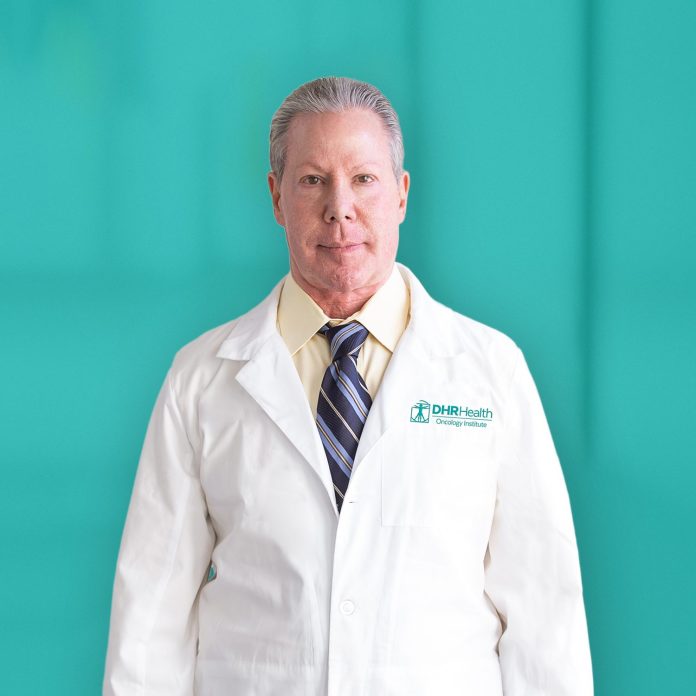By: Dr. Terence Herman at DHR Health Oncology Institute
Esophageal cancer begins with growth of cells in the lining of the esophagus that then can become cancerous. There are 2 types of esophagus cancers: squamous cell carcinoma and adenocarcinoma. Squamous cell carcinoma affects the inner layer of the esophagus, in the neck region and the upper two-thirds of the chest. Adenocarcinomas are cancers that begin in gland cells. These are often found in the lower part of the esophagus. How do these cells begin to grow and turn into cancer?
Some common symptoms include: trouble swallowing; chest pain; weight loss; hoarseness; chronic cough; vomiting; and bleeding into the esophagus. Dysphagia (trouble swallowing) can often be the most common symptom where people have a hard time swallowing their food. Over time it can get harder to swallow food as the esophagus is getting smaller from the cancer growing. Trouble swallowing should never be ignored, and an appointment with a Gastroenterologist for an endoscopy is recommended. If you should display any of these symptoms, please contact your primary care physician to discuss these as well as your risks and family history.
The chance of getting esophageal cancer does increase with age. According to the American Cancer Society, fewer than 15% of cases are found in people younger than 55 years of age. Men seem to be more likely than women to be diagnosed with esophageal cancer. Using tobacco products for a lengthy time period or alcohol use increases the risk of esophageal cancer.
Some people may suffer from gastroesophageal reflux disease (GERD). Although acid reflux does cause heart burn that radiates to the middle of the chest, not all pain is linked to a cancer diagnosis. Eliminating acid reflux decreases the symptoms of GERD, but this does not change the risk of getting esophageal cancer.
Obesity and diet are also risk factors that can determine if you will develop this type of cancer. Poor diet choices, especially those high in processed meats may increase your risk. Eating fruits and vegetables lowers your chance of developing this type of cancer, along with regular physical activity.
Human papillomavirus (HPV) infection has also been linked to esophageal (throat), anal and cervical cancer, so early detection of HPV can lead to early detection for esophageal cancer.
Like with any type of cancer, there are risk factors that you can and cannot change. If you have two or more risk factors, it does not mean that you have or will develop esophageal cancer, however, you may be at a higher risk.
If you have questions regarding esophageal cancer, it is important to have a conversation with your primary care physician about any questions you may have concerning risks, symptoms and family history or the steps you should be taking to help ease your symptoms.




